
Kód: 01975514
Interpretation, Law and the Construction of Meaning
Autor Anne Wagner, Wouter Werner, Deborah Cao
Legal semiotics emphasizes the contingency and fluidity of legal concepts and stresses the existence of overlapping, competing and coexisting legal discourses. In response to new problems, changing power structures, changing socie ... celý popis
- Jazyk:
 Angličtina
Angličtina - Vazba: Brožovaná
- Počet stran: 219
Nakladatelství: Springer, 2010
- Více informací o knize

3313 Kč

Skladem u dodavatele v malém množství
Odesíláme za 10-15 dnů
Potřebujete více kusů?Máte-li zájem o více kusů, prověřte, prosím, nejprve dostupnost titulu na naši zákaznické podpoře.
Přidat mezi přání
Mohlo by se vám také líbit
-
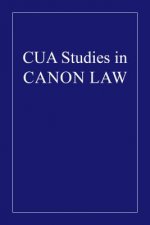
Doctrinal Interpretation of Law
1615 Kč -

Duke, the Lady, and a Baby
384 Kč -

Calisthenics Workout Bible
479 Kč -

Coyotes - Curious Kids Press
382 Kč -

On the Interpretation of Statutes.
1120 Kč -

Song of Achilles
276 Kč -

Sam Vol. 3: A Million Winters
356 Kč -

Communities And Environmental Governance In Vietnam
1552 Kč -

Edward II
854 Kč -

Scapegoat
701 Kč -

White Rajah
303 Kč -

English Result Elementary: Workbook with MultiROM Pack
895 Kč -

Julie & Julia
450 Kč -

Engagement and Access
1971 Kč
Dárkový poukaz: Radost zaručena
- Darujte poukaz v libovolné hodnotě a my se postaráme o zbytek.
- Poukaz se vztahuje na celou naši nabídku.
- Elektronický poukaz vytisknete z e-mailu a můžete ihned darovat.
- Platnost poukazu je 12 měsíců od data vystavení.
Více informací o knize Interpretation, Law and the Construction of Meaning
Nákupem získáte 331 bodů
 Anotace knihy
Anotace knihy
Legal semiotics emphasizes the contingency and fluidity of legal concepts and stresses the existence of overlapping, competing and coexisting legal discourses. In response to new problems, changing power structures, changing societal norms and new faces of injustice established doctrines are reconsidered, reformulated and partly replaced by competing doctrines and hypotheses. Given the relative indeterminacy of law, it is no surprise that the problem of interpretation has always been one of the focal points of attention for legal semiotics. Who has the power to define words and concepts? Who can successfully assume the power to speak on behalf of the legal community? Which methods are used to justify the power to define?§This book discusses the questions mentioned above from three, related perspectives:§Legal theory (Part I). This part discusses how more traditional approaches have dealt with the problem of legal interpretation and indeterminacy, questions the methods applied in traditional legal theory and offers new theoretical tools to understand the problem of legal interpretation.§Judicial reasoning (Part II). The insights discussed in Part I are refined using legal semiotics, speech act theory and rhetorics and applied to the legal reasoning of courts and tribunals either in common law and civil law traditions.§Application of law in politics and diplomatic practice (Part III). Traditionally, the study of legal reasoning has focussed on the application of law by courts and tribunals. However, legal reasoning also takes place outside the courtroom and takes up in the political and diplomatic arena. Who is included and excluded by particular conceptions of law? How does law deal with the phenomenon of interculturality?§"Combining theoretical inspiration with a keen interest in case law, this volume will appeal to scholars and students of legal theory, jurisprudence, legal anthropology, postcolonial studies, indeed to anyone who s interested in problems of interpretation in legal and political theory and practice. It should also come in very handy in the classroom." Ronnie Lippens, Professor of Criminology, Keele UniversityThe study of legal semiotics emphasizes the contingency and fluidity of legal concepts and stresses the existence of overlapping, competing and coexisting legal discourses. New problems, changing power structures and societal norms and new faces of injustice all these force reconsideration, reformulation and even replacement of established doctrines. This book focuses on the application of law in a wide variety of contexts, including international politics and diplomatic practice.Legal semiotics emphasizes the contingency and fluidity of legal concepts and stresses the existence of overlapping, competing and coexisting legal discourses. In response to new problems, changing power structures, changing societal norms and new faces of injustice established doctrines are reconsidered, reformulated and partly replaced by competing doctrines and hypotheses. Given the relative indeterminacy of law, it is no surprise that the problem of interpretation has always been one of the focal points of attention for legal semiotics. Who has the power to define words and concepts? Who can successfully assume the power to speak on behalf of the legal community? Which methods are used to justify the power to define?§This book discusses the questions mentioned above from three, related perspectives:§Legal theory (Part I). This part discusses how more traditional approaches have dealt with the problem of legal interpretation and indeterminacy, questions the methods applied in traditional legal theory and offers new theoretical tools to understand the problem of legal interpretation.§Judicial reasoning (Part II). The insights discussed in Part I are refined using legal semiotics, speech act theory and rhetorics and applied to the legal reasoning of courts and tribunals either in common law and civil law traditions.§Application of law in politics and diplomatic practice (Part III). Traditionally, the study of legal reasoning has focussed on the application of law by courts and tribunals. However, legal reasoning also takes place outside the courtroom and takes up in the political and diplomatic arena. Who is included and excluded by particular conceptions of law? How does law deal with the phenomenon of interculturality?§"Combining theoretical inspiration with a keen interest in case law, this volume will appeal to scholars and students of legal theory, jurisprudence, legal anthropology, postcolonial studies, indeed to anyone who s interested in problems of interpretation in legal and political theory and practice. It should also come in very handy in the classroom."Ronnie Lippens, Professor of Criminology, Keele University.
 Parametry knihy
Parametry knihy
Zařazení knihy Knihy v angličtině Language linguistics Philosophy of language
3313 Kč
- Plný název: Interpretation, Law and the Construction of Meaning
- Podnázev: Collected Papers on Legal Interpretation in Theory, Adjudication and Political Practice
- Autor: Anne Wagner, Wouter Werner, Deborah Cao
- Jazyk:
 Angličtina
Angličtina - Vazba: Brožovaná
- Počet stran: 219
- EAN: 9789048173389
- ISBN: 9048173388
- ID: 01975514
- Nakladatelství: Springer
- Hmotnost: 367 g
- Rozměry: 235 × 155 × 13 mm
- Datum vydání: 19. October 2010
Oblíbené z jiného soudku
-

Rosicrucian Manual
392 Kč -

Language Instinct
357 Kč -

Essential Chomsky
543 Kč -

Practice Makes Perfect English Articles and Determiners Up Close
330 Kč -

Making the Social World
303 Kč -

Trivium
517 Kč -

Image Music Text
276 Kč -

Inquiry into Modes of Existence
903 Kč -

Constructing the World
2062 Kč -

How Language Works
357 Kč -

Construction of Social Reality
357 Kč -

What Kind of Creatures Are We?
358 Kč -
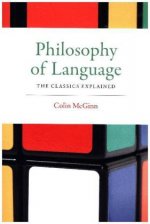
Philosophy of Language
991 Kč -

Making It Explicit
1360 Kč -

Introduction to Cognitive Linguistics
2305 Kč -

Language Hoax
368 Kč -
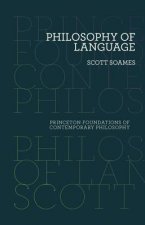
Philosophy of Language
659 Kč -

More than Cool Reason
852 Kč -

On Nature and Language
1490 Kč -

Decoding Chomsky
291 Kč -

Practice Makes Perfect English Pronouns and Prepositions, Second Edition
376 Kč -

Semiotics and the Philosophy of Language
625 Kč -
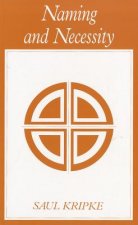
Naming and Necessity
698 Kč -

Latin
786 Kč -
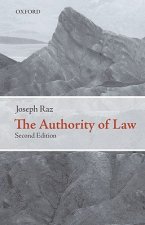
Authority of Law
1356 Kč -

Ascent of Babel
2493 Kč -
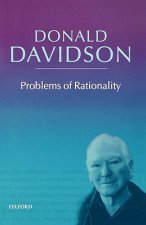
Problems of Rationality
1709 Kč -

Inferentialism
4204 Kč -

Process Philosophy of Signs
853 Kč -
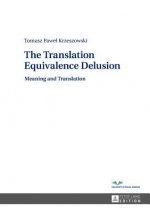
Translation Equivalence Delusion
2730 Kč -
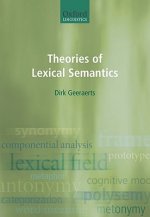
Theories of Lexical Semantics
1584 Kč -
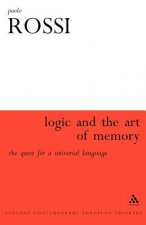
Logic and the Art of Memory
3635 Kč -
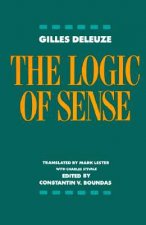
Logic of Sense
635 Kč -

Philosophy of Language
1514 Kč -

How to Do Things with Words
1515 Kč -

Critical Introduction to the Philosophy of Language
1611 Kč -

From Hand to Mouth
1185 Kč -
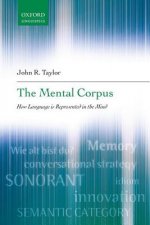
Mental Corpus
1526 Kč -

Ontology after Carnap
2996 Kč -

Philosophy of Poetry
3022 Kč -

Practice Makes Perfect English Verb Tenses Up Close
502 Kč -

Language Animal
967 Kč -

Metaphor
1332 Kč -
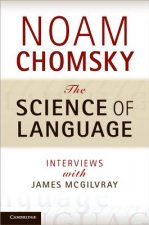
Science of Language
910 Kč -

In Contradiction
2243 Kč -
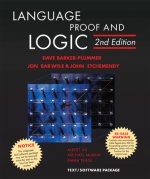
Language, Proof, and Logic
2342 Kč -
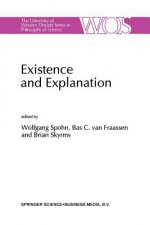
Existence and Explanation
5094 Kč -
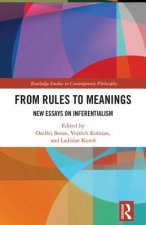
From Rules to Meanings
5564 Kč -
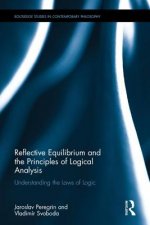
Reflective Equilibrium and the Principles of Logical Analysis
6077 Kč
Osobní odběr Praha, Brno a 12903 dalších
Copyright ©2008-24 nejlevnejsi-knihy.cz Všechna práva vyhrazenaSoukromíCookies


 Vrácení do měsíce
Vrácení do měsíce 571 999 099 (8-15.30h)
571 999 099 (8-15.30h)